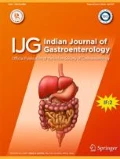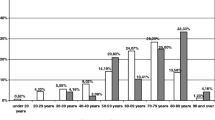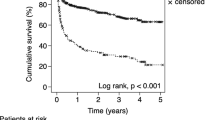Abstract
Background
Factors associated with complicated Clostridium difficile infection (CDI) may vary among populations, and predictors of severe outcomes in CDI have not been studied in Hispanic patients. The aim of this study was to identify factors associated with a higher risk of colectomy, all-cause mortality, and CDI-associated mortality in a Hispanic population.
Methods
We performed a retrospective study of all hospitalized patients with a diagnosis of CDI between January 1, 2011 and September 30, 2015 in a 450-bed teaching hospital in Monterrey, northeast Mexico. Three main outcomes were defined: fulminant colitis with subsequent colectomy, all-cause mortality within 30 days of diagnosis, and CDI-attributable mortality.
Results
Of 261 patients with diarrhea, 176 were diagnosed with CDI. For colectomy, Charlson comorbidity index, ICU stay and mechanical ventilation prior to CDI diagnosis, days with diarrhea prior to treatment, total days of hospital stay and days after CDI diagnosis, elevated ATLAS score, days of diarrhea post CDI treatment, and treatment failure significantly predicted the necessity of surgical treatment with colectomy.
Conclusion
Treatment failure, persistent diarrhea, and a high ATLAS score were identified as risk factors for severe outcomes of CDI. A low albumin concentration and high creatinine were associated with higher overall mortality.
Similar content being viewed by others
References
Cohen SH, Gerding DN, Johnson S, et al. Clinical practice guidelines for Clostridium difficile infection in adults: 2010 update by the society for healthcare epidemiology of America (SHEA) and the infectious diseases society of America (IDSA). Infect Control Hosp Epidemiol. 2010;31:431–55.
Postma N, Kiers D, Pickkers P. The challenge of Clostridium difficile infection: overview of clinical manifestations, diagnostic tools and therapeutic options. Int J Antimicrob Agents. 2015;46 Suppl 1:S47–50.
McDonald LC, Killgore GE, Thompson A, et al. An epidemic, toxin gene-variant strain of Clostridium difficile. N Engl J Med. 2005;353:2433–41.
Abou Chakra CN, McGeer A, Labbé AC, et al. Factors associated with complications of Clostridium difficile infection in a multicenter prospective cohort. Clin Infect Dis. 2015;61:1781–8.
Hensgens MP, Dekkers OM, Goorhuis A, LeCessie S, Kuijper EJ. Predicting a complicated course of Clostridium difficile infection at the bedside. Clin Microbiol Infect. 2014;20:O301–8.
Xu S, Huang H, Li G. Clinical practice guidelines for Clostridium difficile infection in adults: 2010 update by the Society for Healthcare Epidemiology of America (SHEA) and the Infectious Diseases Society of America (IDSA). Chinese J Infect Chemother. 2011;11:426–7.
Miller MA, Louie T, Mullane K. Derivation and validation of a simple clinical bedside score (ATLAS) for Clostridium difficile infection, which predicts response to therapy. BMC Infect Dis. 2013;13:148.
Na X, Martin AJ, Sethi S, et al. A multi-center prospective derivation and validation of a clinical prediction tool for severe Clostridium difficile infection. PLoS One. 2015;10:e0123405.
Balassiano IT, Yates EA, Domingues RM, Ferreira EO. Clostridium difficile: a problem of concern in developed countries and still a mystery in Latin America. J Med Microbiol. 2012;61:169–79.
Aguayo C, Flores R, Lévesque S, et al. Rapid spread of Clostridium difficile NAP1/027/ST1 in Chile confirms the emergence of the epidemic strain in Latin America. Epidemiol Infect. 2015;143:3069–73.
López-Ureña D, Quesada-Gómez C, Miranda E, Fonseca M, Rodríguez-Cavallini E. Spread of epidemic Clostridium difficile NAP1/027 in Latin America: case reports in Panama. J Med Microbiol. 2014;63:322–4.
Quesada-Gómez C, Mulvey MR, Vargas P, Gamboa-Coronado M del M, Rodríguez C, Rodríguez-Cavillini E. Isolation of a toxigenic and clinical genotype of Clostridium difficile in retail meats in Costa Rica. J Food Prot 2013;76: 348–51.
Camacho-Ortiz A, López-Barrera D, Hernández-García R, et al. First report of Clostridium difficile NAP1/027 in a Mexican hospital. PLoS One. 2015;10:1–10.
Kim SC, Seo MY, Lee JY, et al. Advanced chronic kidney disease: a strong risk factor for Clostridium difficile infection. Korean J Intern Med. 2016;31:125–33.
Thongprayoon C, Cheungpasitporn W, Phatharacharukul P, et al. Chronic kidney disease and end-stage renal disease are risk factors for poor outcomes of Clostridium difficile infection: a systematic review and meta-analysis. Int J Clin Pract. 2015;69:998–1006.
Author information
Authors and Affiliations
Corresponding author
Ethics declarations
Conflict of interest
LP-D, EG-G, EMG-D, and AC-O declare that they have no conflict of interest.
Funding
None.
Ethics statement
The study was performed in a manner to conform with the Helsinki Declaration of 1975, as revised in 2000 and 2008 concerning human and animal rights, and the authors followed the policy concerning informed consent as shown on Springer.com. For this type of study, formal consent is not required.
Rights and permissions
About this article
Cite this article
Paláu-Dávila, L., Garza-González, E., Gutiérrez-Delgado, E.M. et al. Predictors of severe outcomes in patients with Clostridium difficile infection from a Hispanic population. Indian J Gastroenterol 36, 38–42 (2017). https://doi.org/10.1007/s12664-016-0722-4
Received:
Accepted:
Published:
Issue Date:
DOI: https://doi.org/10.1007/s12664-016-0722-4




